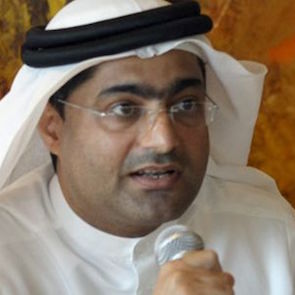UAE: Mission report illustrates difficulty of verifying conditions of detention and trial of Ahmed Mansoor, serving 10-year sentence for human rights reporting
Fifteen months after the arrest of prominent human rights defender Ahmed Mansoor in the United Arab Emirates (UAE), human rights organisations still have no confirmation of his exact detention location, nor the condition in which he is being held. There are few details about the trial of Mansoor, who was sentenced to 10 years in prison on 29 May 2018 for his human rights activities, apart from what has been reported in the media.
On 26 February 2018, two lawyers from Ireland approached the UAE Ministry of the Interior in an attempt to determine the exact whereabouts of Mansoor, and to visit him if possible. Today, the Gulf Centre for Human Rights (GCHR), the Martin Ennals Foundation, Front Line Defenders, the
International Service for Human Rights (ISHR) and the Observatory for the Protection of Human Rights Defenders, a partnership of FIDH and the World Organisation Against Torture (OMCT), reiterate their calls to free Mansoor, as they release a report of the mission, “Ahmed Mansoor, the Missing Prisoner”.
Mansoor, who has been detained since 20 March 2017 for his human rights activities, received the Martin Ennals Award for Human Rights Defenders in 2015, and is a member of the GCHR advisory board. He is the father of four young boys.
According to local media reports, on 29 May 2018, Ahmed Mansoor was convicted of various charges and sentenced to 10 years by the State Security Chamber of the Federal Supreme Court. (1) He was also fined one million Dirhams (USD $272,294.00) and the court ordered him to be put under surveillance for three years upon his release. Local media have said that Mansoor was convicted of “insulting the 'status and prestige of the UAE and its symbols' including its leaders” and of “seeking to damage the relationship of the UAE with its neighbours by publishing false reports and information on social media.” Under new laws in the UAE, Mansoor will be entitled to appeal the verdict.
“This trial raises a number of concerns,” says the mission report, calling it “grossly unfair.” The mission report said, “There was no public announcement that the trial would take place. The conviction and sentence were reported in the media, but there has been no public pronouncement or information on the trial itself. While Mansoor was represented by a lawyer, this was only announced in the press after the fact. Furthermore, it appears that the appeal process would be held in the same court.”
The mission report concludes: “Given the widely documented use of torture and solitary confinement by UAE authorities, and the lack of any independent information regarding Mansoor, there are grave and solidly founded fears for his safety. His place of detention remains unknown, although it is believed that he is being held in a prison that belongs to the State Security Apparatus. There is no information on how he is being treated, or whether he is in solitary confinement.”
On 12 June 2018, UN human rights experts urged the UAE authorities to immediately free Mansoor and “reverse the decision against him.” They state: “The sentencing of Ahmed Mansoor represents an unacceptable attack on freedom of expression and freedom of association, as well as on human rights defenders in the United Arab Emirates as a whole.” The UN experts added, “Not only is such a sentence unreasonably severe but Mr. Mansoor should never have been detained in the first place for legitimately exercising the freedoms that all people, including human rights defenders, are entitled to.”
The mission report is available in English and Arabic. Download the full report in English here.

